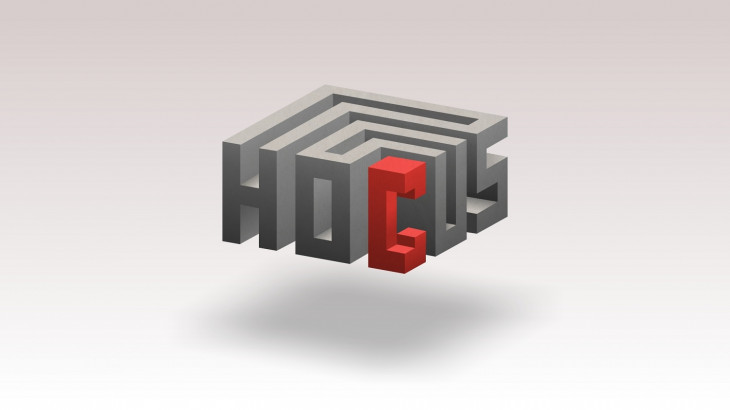
Platforms:
-PC (Steam)
-iOS & Android
-Nintendo Switch (the 2nd part, Hocus 2).
Hocus is a beautifully minimalist puzzle game that plays with impossible geometry, offering a meditative yet intellectually stimulating experience. Developed by gamebra.in, it presents a series of M.C. Escher-inspired structures where paths twist, loop, and defy logic. Your goal is simple: guide a small red cube to the designated endpoint. However, thanks to the game’s unique spatial mechanics, the journey is anything but straightforward.
With over 100 handcrafted levels and a relaxing ambient soundtrack, Hocus strips away unnecessary complexity, focusing entirely on its optical illusion-based puzzles. It’s a game that encourages experimentation and perspective shifts, rewarding those who take the time to truly "see" the solutions hidden within each shape.
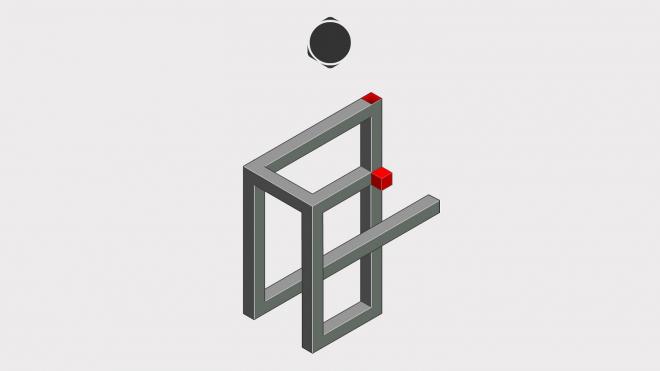
A Game Reminiscent of EDGE and Echochrome
If you're a fan of geometric puzzles and spatial navigation games, Hocus will likely remind you of EDGE and Echochrome, two classic puzzle-platformers that explore movement and perspective in unique ways.
EDGE (originally developed by Mobigame and later published by Two Tribes on Steam) is a puzzle-platformer where players control a small cube rolling across abstract landscapes. While EDGE emphasizes platforming mechanics such as momentum, inertia, and precise movement, it shares Hocus’s focus on minimalist design and geometric problem-solving controlling a little cube. Both games challenge the player’s spatial reasoning, though EDGE leans more into dexterity-based challenges.
Echochrome, originally released on PlayStation systems, is a puzzle game based entirely on optical illusions and perspective tricks. In Echochrome, platforms connect only when the player's viewpoint aligns them correctly, creating a surreal world where movement is dictated by perception rather than physical laws. Hocus, while not offering direct perspective manipulation, evokes a similar feeling by forcing players to rethink how objects connect within an impossible space. The way paths seem to shift as the cube moves can sometimes give the same brain-twisting effect, making it a great alternative for fans of Echochrome’s spatial logic.
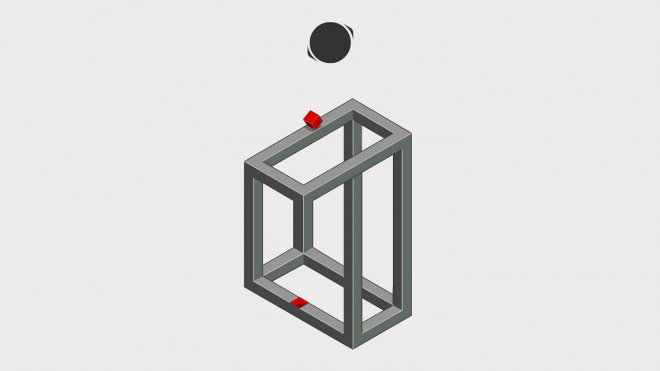
Gameplay Mechanics and Design
Hocus operates on a simple yet deep premise: move the cube along the edges of an Escher-like structure until you reach the goal. Movement is linear—you can only follow predefined paths—but the way these paths are connected defies conventional logic. Some transitions appear natural at first glance, only to reveal themselves as paradoxical connections once you start moving.
What makes the game particularly engaging is how it forces you to mentally untangle each level’s structure. There’s no rush, no time limits, and no penalties for making mistakes. Instead, Hocus encourages a relaxed, trial-and-error approach, allowing players to experiment and gradually understand the underlying rules of its impossible geometry.
Later levels introduce more intricate shapes, requiring careful planning and a deeper understanding of how different edges interact. The difficulty ramps up steadily, but the game remains accessible thanks to its intuitive touch-based interface and clean, clutter-free visuals.
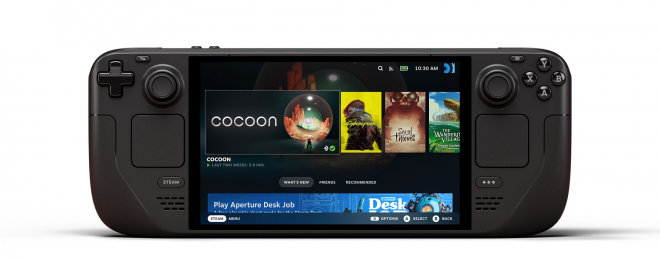
Steam Deck Performance – A Perfect Fit for Handheld Play
Hocus runs flawlessly on the Steam Deck, making it an excellent choice for puzzle fans who prefer a portable experience. The game’s minimalistic graphics ensure that it performs without any hiccups, and its simple controls translate well to both touchscreen and physical inputs.
Control Options on Steam Deck:
-Touchscreen Controls – The most intuitive way to play, allowing you to tap and drag the cube to move it along the paths. This method is smooth and responsive, making it feel very natural on the Deck’s display.
-Controller Support – While Hocus does not have official gamepad support, it can be played with the Deck’s buttons and joystick by configuring one of the community-made controller layouts via Steam Input. Mapping the left joystick or D-pad to directional movement provides a solid alternative for those who prefer physical controls over touch input.
Regardless of your preferred control method, Hocus feels right at home on Steam Deck. Its bite-sized puzzle format is perfect for short play sessions, and the relaxed pacing makes it an ideal game for unwinding without the pressure of fast reactions or complex mechanics.
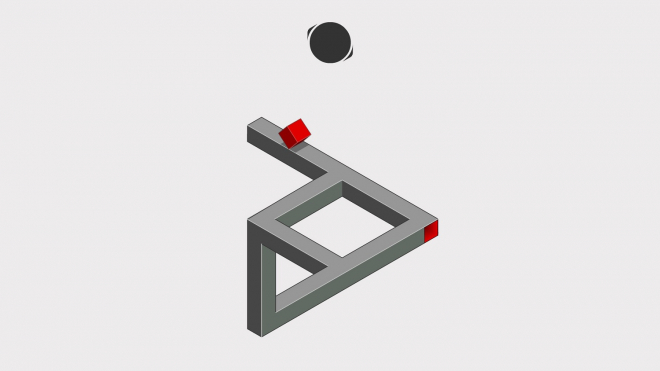
Final Verdict
Hocus is a small yet brilliant puzzle game that demonstrates the power of minimalism in game design. It doesn’t rely on flashy visuals or complicated mechanics; instead, it challenges the player’s perception with elegant, well-crafted levels that turn spatial logic into an art form.
Fans of impossible geometry puzzles will find plenty to enjoy here, especially if they appreciate games like EDGE and Echochrome. While it might not be the most complex puzzle game out there, its satisfying mechanics, relaxing presentation, and well-designed levels make it a standout choice for anyone looking to stretch their brain in a calm and meditative way.
AUTHOR INFORMATION

 A clever and minimalist puzzle experience that challenges spatial perception with elegant, mind-bending design.
A clever and minimalist puzzle experience that challenges spatial perception with elegant, mind-bending design.
 Clean and minimalist, with a focus on geometric simplicity that enhances the optical illusion-based puzzles.
Clean and minimalist, with a focus on geometric simplicity that enhances the optical illusion-based puzzles.
 A relaxing ambient soundtrack and subtle sound effects create a calm, meditative atmosphere that complements the puzzle-solving experience.
A relaxing ambient soundtrack and subtle sound effects create a calm, meditative atmosphere that complements the puzzle-solving experience.
 Runs smoothly on Steam Deck, with touchscreen controls working flawlessly. However, it loses some points for requiring a community controller configuration to use physical controls, as there is no native gamepad support.
Runs smoothly on Steam Deck, with touchscreen controls working flawlessly. However, it loses some points for requiring a community controller configuration to use physical controls, as there is no native gamepad support.
PROS / CONS
- Clever optical illusion puzzles that challenge spatial reasoning
- Minimalist design with no distractions
- Relaxing gameplay with no time pressure
- Great fit for handheld play, especially on Steam Deck
- Works smoothly with both touchscreen and controller configurations
- Might feel too simple for those looking for more complex mechanics
- Some later puzzles can feel repetitive




